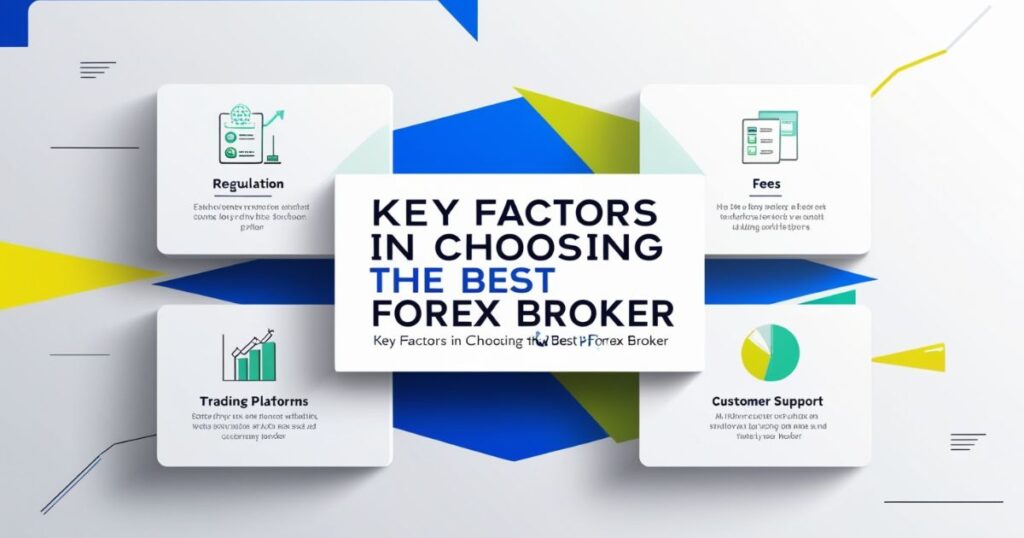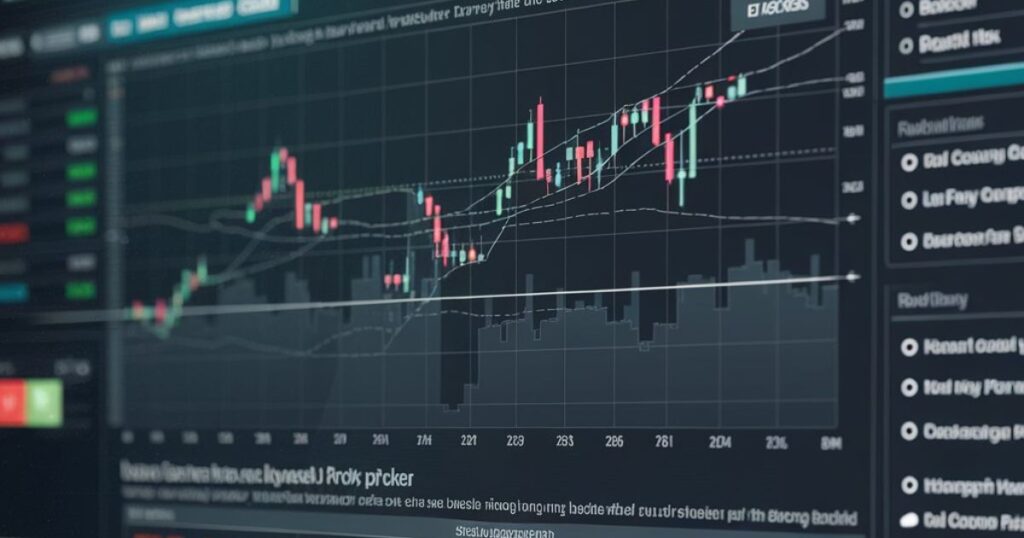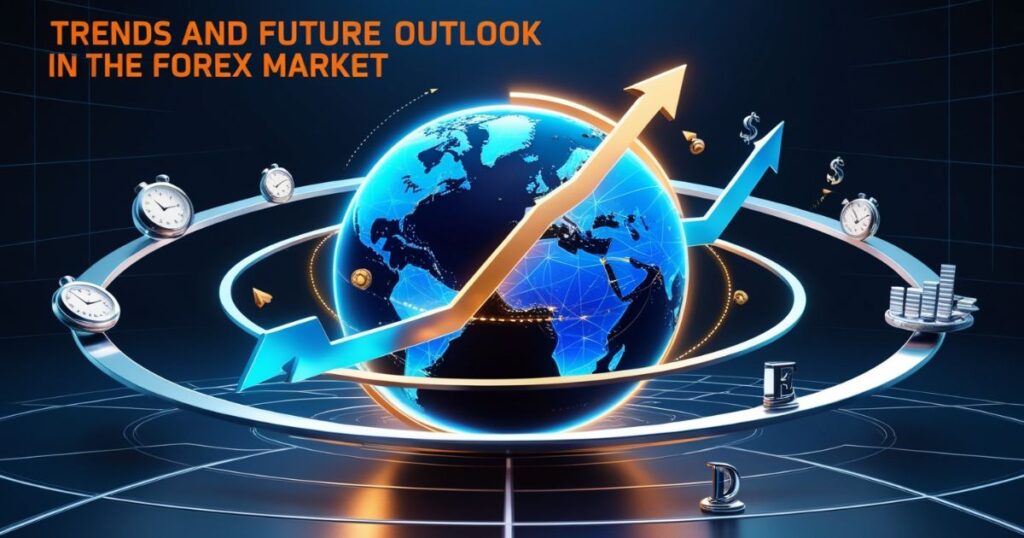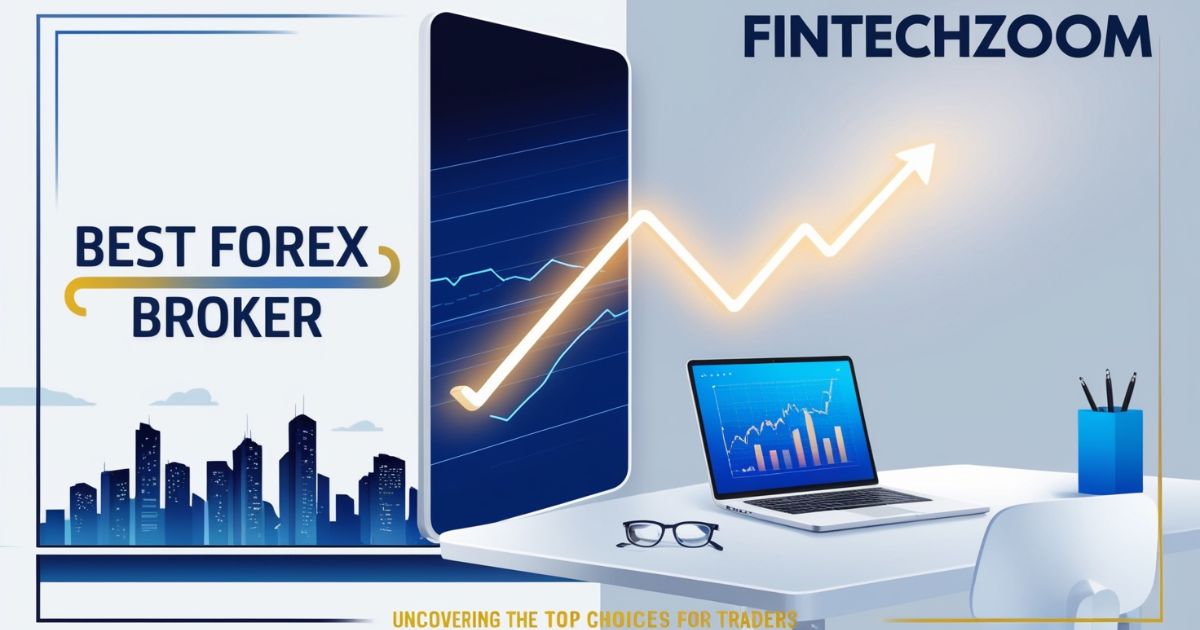In today’s dynamic financial landscape, selecting the right forex broker can mean the difference between success and frustration. With over 10,000 registered brokers worldwide, making an informed choice becomes crucial for both novice and experienced traders. This comprehensive guide leverages FintechZoom’s extensive research and market analysis to help you navigate the complex world of forex brokers.
Understanding the Forex Market and Its Significance
What is the Forex Market?
The foreign exchange market represents a fascinating ecosystem where currencies are traded 24 hours a day. With a staggering $6.6 trillion in daily trading volume, it’s not just the largest financial market – it’s also the most accessible.
Unlike traditional stock exchanges confined to physical locations, forex operates through a sophisticated electronic network spanning global financial centers.
The market’s structure has evolved significantly since the advent of electronic trading. In the 1990s, only large institutions could participate in forex trading.
Today, advances in technology have democratized access, allowing individual traders to engage with the same markets as major banks and financial institutions.
Modern forex trading encompasses various instruments:
- Spot forex trading
- Currency futures and options
- Forward contracts
- Currency swaps
- Exotic currency pairs
Significance of the Forex Market
The forex market’s importance extends far beyond simple currency exchange. In today’s interconnected global economy, it serves as a crucial mechanism for international trade, investment, and monetary policy implementation.
Recent studies by the Bank for International Settlements show that forex trading volumes have increased by 40% since 2016, highlighting its growing significance.
Consider how Amazon, operating in multiple countries, manages currency risks. When selling products in Europe but paying suppliers in USD, they must navigate exchange rate fluctuations. This real-world example demonstrates how forex markets impact everyday business operations.
The market also plays a vital role in:
- International trade facilitation
- Global investment flows
- Economic policy implementation
- Price discovery
- Risk management
- Monetary policy transmission
The Forex Market’s Structure and Participants
The forex market operates through a hierarchical structure where different participants interact across multiple levels. At the top, major central banks like the Federal Reserve, European Central Bank, and Bank of Japan influence currency values through monetary policy decisions.
The interbank market, dominated by large commercial banks, handles approximately 40% of daily forex transactions. These institutions, including JPMorgan Chase, Deutsche Bank, and Citigroup, serve as market makers, providing liquidity and setting exchange rates.
Key participants include:
Commercial Banks
- Handle massive daily transaction volumes
- Provide liquidity to the market
- Set exchange rates based on supply and demand
Central Banks
- Manage monetary policy
- Intervene to stabilize their currencies
- Maintain foreign exchange reserves
Investment Firms
- Execute trades for clients
- Manage large investment portfolios
- Develop sophisticated trading strategies
Retail Traders
- Individual investors trading personal accounts
- Access markets through online platforms
- Represent a growing segment of market participants
Key Factors Influencing the Forex Market
The intricate web of factors affecting currency markets has grown more complex in our interconnected world. Economic indicators remain fundamental drivers, but their impact varies based on market conditions and global circumstances.
For instance, when the Federal Reserve announced emergency rate cuts during recent global events, the USD responded with unprecedented volatility across major currency pairs.
Interest rate differentials between countries create powerful currents in currency flows. When the European Central Bank maintains negative rates while the Federal Reserve holds positive rates, this creates significant opportunities for carry trades. Professional traders often construct complex strategies around these interest rate disparities.
Market sentiment has evolved with technology. Social media platforms now influence trading decisions almost instantly. A single tweet from a prominent financial figure can trigger substantial market movements.
The rise of sentiment analysis tools, powered by artificial intelligence, helps traders gauge market psychology more effectively than ever before.
Technical factors play an increasingly important role. With high-frequency trading accounting for over 70% of market volume in major currency pairs, understanding technical analysis becomes crucial.
Key technical levels, particularly in the EUR/USD pair, often create self-fulfilling prophecies as automated trading systems react to these barriers.
Key Factors in Choosing the Best Forex Broker

Understanding Your Trading Style
Your trading approach should dictate your broker selection. Day traders require different features than position traders or swing traders. For instance, a day trader focusing on EUR/USD might prioritize execution speed and tight spreads, while a position trader holding trades for weeks might care more about swap rates and fundamental analysis tools.
Modern trading styles have evolved beyond traditional approaches. Algorithmic trading now accounts for a significant portion of retail trading volume. Traders using expert advisors (EAs) need brokers supporting automated trading solutions.
OANDA and IC Markets have distinguished themselves in this area, offering robust API access and supporting various trading algorithms.
Social trading has emerged as a popular approach, especially among newer traders. Platforms like eToro pioneered this concept, but traditional brokers have adapted, with Pepperstone and XM incorporating social trading features into their offerings.
Must-have Regulation and Safety Aspects
The regulatory landscape continues to evolve, with authorities implementing stricter oversight measures. The Financial Conduct Authority (FCA) recently enhanced its requirements for broker capitalization and client fund protection.
Similarly, the Australian Securities and Investment Commission (ASIC) introduced new leverage restrictions to protect retail traders.
Cybersecurity has become paramount in broker selection. Recent data from cybersecurity firms indicates that financial services face increasingly sophisticated attacks. Leading brokers now implement multiple security layers:
- Quantum-level encryption protocols
- Multi-factor authentication systems
- Biometric verification methods
- Regular third-party security audits
- Real-time fraud detection systems
Also Read: Mastering Non-Profit Financials: Jones Financial Planning for Charities Comprehensive Guide
Transaction Costs and Commissions
Smart traders recognize that transaction costs can make or break profitability. The forex market presents various cost structures that savvy traders must navigate. Leading brokers like XTB and CMC Markets have revolutionized pricing models, offering competitive spreads while maintaining service quality.
Understanding the total cost of trading involves analyzing:
- Spread costs on major and minor pairs
- Commission structures for different account types
- Overnight financing rates (swap rates)
- Platform and data feed fees
- Deposit and withdrawal charges
Evaluating Platforms’ Features
The trading platform serves as your gateway to the markets. MetaTrader 4 remains the industry standard, but innovative proprietary platforms from brokers like IG Group and Pepperstone offer compelling alternatives. Modern platforms must deliver:
Advanced charting capabilities with multiple timeframes Real-time market data and news integration Automated trading capabilities through APIs Risk management tools and position sizing calculators Mobile trading functionality
Localization and Support
Global markets demand global service. Leading brokers understand this, offering localized support across multiple time zones and languages. IC Markets exemplifies this approach, providing customer service in over 14 languages and maintaining regional offices worldwide.
The Role of Customer Support in Forex Trading

Quality customer support can transform your trading experience. Whether you’re facing technical issues or seeking market guidance, responsive support proves invaluable. XM has set industry standards with their 24/7 multilingual support team, demonstrating how crucial this aspect is for traders worldwide.
FintechZoom’s Top Picks for Forex Brokers
Through rigorous analysis and extensive market research, FintechZoom has identified standout brokers that consistently deliver excellence. These selections reflect a comprehensive evaluation of trading conditions, platform reliability, and customer satisfaction metrics.
OANDA emerges as a pioneer in forex trading innovation. Their transparency in pricing and robust educational resources make them particularly attractive to U.S. traders. Their proprietary fxTrade platform combines sophisticated features with user-friendly design, while their integration with TradingView appeals to technical analysts.
Saxo Bank demonstrates exceptional strength in multi-asset trading. Their SaxoTraderGO platform represents the pinnacle of trading technology, offering institutional-grade research alongside powerful execution capabilities. The platform processes over $46 billion in daily trades, showcasing their market presence and reliability.
XTB continues to innovate in the digital trading space. Their xStation 5 platform exemplifies modern trading technology, featuring advanced charting tools and seamless market analysis integration. Recent studies by the University of Warsaw highlight XTB’s technological edge in providing superior execution speeds.
CMC Markets stands out for their comprehensive trading ecosystem. With over 10,000 trading instruments and competitive spreads, they’ve earned recognition from Greenwich Associates for excellence in trading experience. Their NextGeneration platform combines powerful features with intuitive design.
Comparing Trading Platforms and Tools
The evolution of trading platforms has transformed how traders interact with markets. Modern platforms must balance sophisticated functionality with user-friendly interfaces. MetaTrader 4 and 5 remain industry standards, but proprietary platforms are gaining traction through innovation.
Advanced Charting Capabilities now include artificial intelligence-powered pattern recognition and automated technical analysis. ForexBrokers.com research indicates that 78% of successful traders prioritize advanced charting features in their platform selection.
Integration of News and Analysis has become crucial. Leading platforms now incorporate real-time news feeds, economic calendars, and sentiment indicators. This integration helps traders make informed decisions based on both technical and fundamental factors.
Mobile Trading Capabilities
The shift toward mobile trading continues to accelerate. Finance Magnates reports that over 70% of retail forex trades now involve mobile platforms. Leading brokers have responded by developing sophisticated mobile applications that rival their desktop counterparts.
Security and Compliance
In today’s digital trading environment, security measures have become increasingly sophisticated. Two-factor authentication (2FA) represents the minimum standard, with many brokers implementing biometric security features. The Financial Conduct Authority (FCA) reports that regulated brokers demonstrate significantly lower instances of security breaches.
Key security features include:
- Advanced encryption protocols
- Regular security audits
- Protected client funds
- Insurance coverage
- Anti-fraud monitoring systems
Trends and Future Outlook in the Forex Market

The forex market continues to evolve, driven by technological innovation and changing trader demographics. Artificial Intelligence and Machine Learning are revolutionizing trading strategies, while blockchain technology promises to transform settlement processes.
Decentralized Finance (DeFi) emerges as a transformative force in currency trading. Smart contracts on platforms like Ethereum enable automated trading protocols, reducing counterparty risk and increasing transparency. Chainalysis data shows exponential growth in DeFi adoption among forex traders.
Regulatory Developments continue to shape the trading landscape. The CFTC and other regulatory bodies are implementing stricter oversight measures, particularly regarding leverage limits and reporting requirements. These changes aim to enhance market stability and protect retail traders.
The Impact of Geopolitical Events
The forex market’s sensitivity to global events continues to intensify. Trade relationships, political shifts, and international conflicts create both challenges and opportunities for traders. Brexit’s impact on GBP pairs and U.S.-China trade tensions affecting USD/CNY demonstrate how geopolitical events can trigger significant market movements.
Shifts in Trading Demographics
A remarkable transformation is occurring in trader demographics. The Bank for International Settlements reports that millennials and Gen Z now represent over 40% of retail forex traders. This demographic shift has accelerated the adoption of mobile trading platforms and social trading features.
FAQ’s
Which forex broker is best for trading?
The optimal choice depends on your specific needs. However, OANDA consistently ranks highly for U.S. traders due to their robust regulation, competitive pricing, and advanced technology. Saxo Bank excels for sophisticated traders seeking comprehensive research tools, while XTB stands out for their user-friendly platform and educational resources.
Which broker is best for forex trading in Pakistan?
For Pakistani traders, brokers offering Islamic (swap-free) accounts and local payment methods prove most suitable. XM and IC Markets have established strong reputations in the region, providing dedicated local support and competitive trading conditions.
What are the most trusted forex brokers?
Trust stems from regulatory compliance and operational transparency. Brokers regulated by tier-1 authorities like the FCA, CFTC, and ASIC typically earn highest trust ratings. These include:
- OANDA (regulated in multiple jurisdictions)
- Saxo Bank (Danish FSA oversight)
- CMC Markets (FCA regulated)
- IG Group (global regulatory coverage)
Who is the best forex trader to follow?
While individual success varies, several traders have established notable track records. However, it’s crucial to develop your own strategy rather than solely copying others. Focus on learning from experienced traders while adapting strategies to your risk tolerance and market understanding.
Conclusion
The journey to selecting the ideal forex broker requires careful consideration of multiple factors. FintechZoom’s analysis reveals that top brokers excel in different areas:
- Technology Leadership: Demonstrated by platforms like xStation 5 and SaxoTraderGO
- Regulatory Compliance: Evidenced through multiple tier-1 licenses
- Customer Support: Exemplified by 24/7 multilingual assistance
- Cost Efficiency: Shown through competitive spreads and transparent fee structures
- Innovation: Reflected in the integration of AI and blockchain technologies
The forex market continues to evolve, driven by technological advancement and changing trader needs. Success in this dynamic environment requires partnering with a broker that aligns with your trading goals while providing the necessary tools and support for effective market participation.
Remember that the “best” broker varies based on individual requirements. Consider your trading style, capital requirements, and risk tolerance when making your selection. Regular review of your broker relationship ensures continued alignment with your evolving trading journey.
The future of forex trading looks increasingly sophisticated, with artificial intelligence, mobile trading, and blockchain technology reshaping market dynamics. Staying informed about these developments while maintaining focus on fundamental trading principles will help ensure long-term success in the forex markets.
By leveraging FintechZoom’s comprehensive broker analysis alongside personal due diligence, traders can make informed decisions that support their trading objectives while maintaining necessary security and regulatory compliance.
Disclaimer: Trading forex involves substantial risk of loss and is not suitable for all investors. Always conduct thorough research and consider seeking professional financial advice before engaging in forex trading.
Explore the latest news and insights from Echozynth and beyond at Echozynth.com

Kiara Arushi is the dedicated admin of this personal website, which serves as a comprehensive hub for general information across various topics. With a keen eye for detail and a passion for knowledge sharing, Kiara curates content that is both informative and engaging, catering to a diverse audience.
Her commitment to providing accurate and up-to-date information ensures that visitors find valuable insights and practical tips in every post. Whether you’re seeking the latest trends or timeless advice, Kiara’s expertise makes this site a trusted resource for all.


